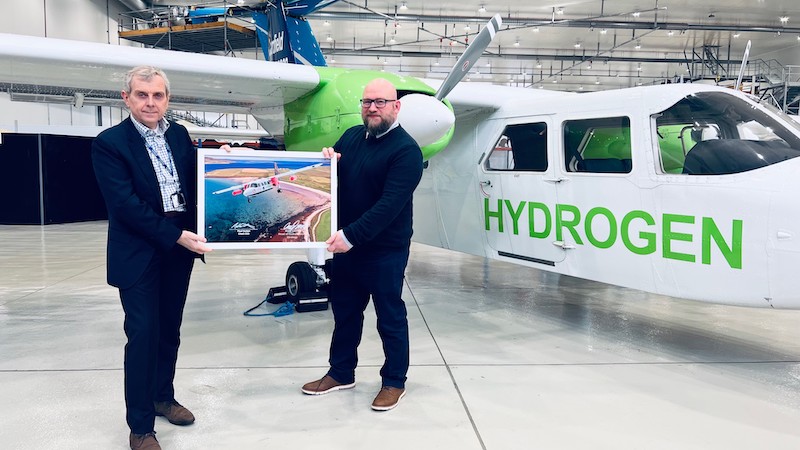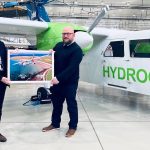

Project aims to get ‘world’s first’ net zero air service off the ground by 2027

An agreement which could see the world’s first commercial zero emission air service delivered in Orkney has been signed by Loganair and Cranfield Aerospace Solutions (CAeS).
The Memorandum of Understanding is the next step in Project Fresson – the development of hydrogen propulsion for Britten-Norman Islander aircraft – and aims to have the first operational hydrogen-electric aircraft flying in Kirkwall by 2027.
The aim of the alliance between Loganair and CAeS, is to ensure the commercial rollout of the hydrogen-powered Islander, with a specific target of introducing the world’s inaugural hydrogen-electric Britten-Norman Islander into operational service within the Orkney region.
Peter Simpson, executive chairman of Loganair, said: “The short haul routes we operate in Orkney and the challenging weather conditions we face, make the ideal test bed for hydrogen-electric aircraft, and we are incredibly proud that we could be offering the world’s first commercial zero emissions flights.”
Paul Hutton, CEO, Cranfield Aerospace Solutions, said: “This Memorandum of Understanding marks a significant stride toward achieving zero-emission flight in the Orkney Islands and potentially enabling the first zero emissions passenger air service, right here in the UK.
“Collaborating closely with Loganair, we aim to harness our combined experience and expertise to address the operational and infrastructure considerations, ultimately ensuring the successful deployment of the hydrogen-electric Britten-Norman Islander across Loganair’s lifeline routes within the islands.”
Project Fresson is named after Captain EE Ted Fresson who operated the first passenger flight between Inverness and Kirkwall 90 years ago, transforming Highlands and Islands travel and connecting the mainland and islands communities like never before.